Scenarios
Video: Media Lab Helsinki, Aalto School of Arts, Design and Architecture
Scenarios: Future Lab
A scenario is a narrative that is used in iTEC as a medium to understand challenges and opportunities of advanced learning practices in European schools. Here is a list of all Scenarios that were created by Future Lab in the context of iTEC. The list includes brief descriptions of each scenarios, and starts with the most recent project cycle. Clicking on the name of the scenarios provides more detailed descriptions.
Teachers are warmly welcome to comment on the Scenarios!
VN:F [1.9.22_1171]
Rating: 4.0/5 (1 vote cast)
This post is also available in:
Dutch Spanish Finnish Hungarian Turkish
iTEC cycle 4 scenarios
Mind mapping the soil – To use mind-maps and related approaches as a powerful tool for learning, in particular to promote deep understanding while at the same time encouraging a cross-curricular approach. Continue reading →
GPS Enabled Learning Games – To use GPS devices in geo-located treasure-hunts and to develop location-based/alternate reality games Continue reading →
Digital Producers – Using digital media to create “broadcasts” of curricular work: presentations, classroom discussions and other school activities are captured and recorded through various means, they are then edited and uploaded to the web or to the VLE. Continue reading →
Create a model – Using models and visualisations to support an argument or to solve a problem. Continue reading →
Audio/video feedback – Using video or audio-recording equipment to record feedback given to a piece of student work. The recordings are uploaded to the VLE. Students are given extra-credits if they access the recordings and if they can demonstrate that they acted on the recommendations. The recordings give clues and direct students to additional resources (books, web-based, etc.). Advantages: quicker and more efficient (and more personalised) way of providing feedback; increased chance of students acting on feedback.
Continue reading →
iTEC cycle 3 scenarios
Designing maths games – My maths teacher colleague Rene and I are struggling with some students in our classes who find maths particularly difficult, are not engaged with the subject and who do not have a secure understanding of some basic maths concepts. We … Continue reading →
Virtual Engines – Simulations can be used for a wide range of topics and goals: science, history, business etc. They can recreate authentic conditions in which learners can experiment with decision making, problem solving or where they can try out daring and unlikely … Continue reading →
Schoolville – I am a member of a group of teachers who, with the support of the head teacher and with all students on board, have started an exciting new initiative to increase participation in the school. The aim is to establish … Continue reading →
Homework and schoolwork “flip” – I’ve been teaching for nearly ten years and have decided to try the popular idea of “flipping” in my class. The basic idea behind flipping is that lectures become homework, while class time is used for collaborative student work, experiential … Continue reading →
Home-school communications – The relationship between home and school was discussed at a recent staff meeting at the secondary school where I teach, and there was an agreed understanding among senior management team and teachers that parent/carers’ engagement in students’ learning at home … Continue reading →
Digitally mapping local biodiversity – I am a high school geography teacher, keen to develop students’ mapping skills and knowledge related to land-use and also to explore how digital technologies can give young people a voice about local spaces. My science teacher colleague wants his … Continue reading →
Designing with multi-touch technologies – I, Mr Disdier, am a design and technology teacher and I want to engage students in my class in thinking about the theories and concepts behind spatial design. I decide to develop a design project using the available multi-touch interface … Continue reading →
iTEC cycle 2 scenarios
Mathematics in a multicultural setting – As immigration and other demographic changes increase the diversity in classrooms, there is a requirement to find new ways in which students can participate in activities that bring them together and break down barriers. Technology can assist in this process creating multi-lingual collaborations which provide rich shared experiences and also offer opportunities for students to increase their engagement in schools and gain confidence. Continue reading →
Combining formative and summative assessment – In response to evidence that formative assessment can greatly enhance learning alongside the demands of a national summative assessment system, teachers can use feedback from technology to combine formative and summative assessment. Additionally, teachers enhance their own professional development by … Continue reading →
Developing collaborative approaches to learning about business – As the fallout of the financial crisis is set to continue, many EU countries are facing massive debts and high spending cuts, which is affecting the job market and decreasing young people’s chances of employment. This activity will support students … Continue reading →
Researching online social behaviour – Teachers are becoming more aware of the opportunity to use social media to support learning because of its impact outside the classroom. There is concern as well as excitement about these online opportunities, creating a need for teachers to reflect … Continue reading →
Using multiple resources and technology to research a common topic – There is a danger that the internet will be taken as the sole resource by students for gathering information – despite the many other sources available. A key 21st century skill is recognising what resource is appropriate and valid and … Continue reading →
Our school, our environment: using technology to raise environmental awareness – There is a generally accepted need to raise environmental awareness among young people. For this to be effective students need to engage in work with authentic problems in a realistic context. Engaging with the community is also important. But for … Continue reading →
Professional development in the global classroom – Legislative and economic pressures mean that certain methods used to teach difficult science, mathematics or technology topics are no longer possible or practical. Teachers need inspiring ideas to cover these gaps. There are pockets of innovation in classrooms around the … Continue reading →
Mentoring Teachers to Improve Digital Literacy – Knowing how to use the web and digital technologies effectively and appropriately is a critical skill for students to learn and is one that is now being addressed within many schools. Teachers are therefore often expected to have high levels … Continue reading →
Embedding exam preparation in learning activities – Students and teachers are confronted by increasing demands from assessment and examinations, which can lead to restrictions in the range of pedagogic activities carried out. This scenario helps resolve this by providing both students and teachers with useful and innovative … Continue reading →
Students creating science learning resources – Science teachers find that some topics in the curriculum are hard for students to grasp and it can be a struggle to keep students interested in the subject. Each year, a teacher is introduced to a new group of children … Continue reading →
iTEC cycle 1 scenarios
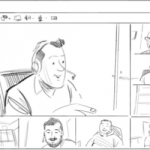 Teacher support network – Teachers have access to an online network of experts and teachers from other subjects and schools who can be easily communicated with and with whom they can jointly plan, practice, observe and reflect upon new approach to teaching. Miss James … Continue reading →
Teacher support network – Teachers have access to an online network of experts and teachers from other subjects and schools who can be easily communicated with and with whom they can jointly plan, practice, observe and reflect upon new approach to teaching. Miss James … Continue reading →
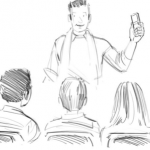 Reacting to student feedback – Building on the range of digital resources that already exist, teachers have access to a Learning Management System (LMS) in which students can record responses based on understanding and progress using a student response system. With this information they can … Continue reading →
Reacting to student feedback – Building on the range of digital resources that already exist, teachers have access to a Learning Management System (LMS) in which students can record responses based on understanding and progress using a student response system. With this information they can … Continue reading →
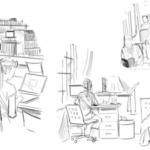 Personal Learning Contract – Teachers act as learning designers, that is, they negotiate a personal programme of study with each of his students based on the students’ initial understanding and preferred choices for working. However, the individual learning programmes are designed to fulfil the … Continue reading →
Personal Learning Contract – Teachers act as learning designers, that is, they negotiate a personal programme of study with each of his students based on the students’ initial understanding and preferred choices for working. However, the individual learning programmes are designed to fulfil the … Continue reading →
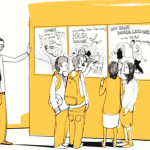 Recognizing informal learning – Video: Media Lab Helsinki, Aalto School of Arts, Design and Architecture Students document and reflect on their informal learning that occurs outside of school. They upload this onto a portfolio and share their learning with teachers and parents where appropriate. … Continue reading →
Recognizing informal learning – Video: Media Lab Helsinki, Aalto School of Arts, Design and Architecture Students document and reflect on their informal learning that occurs outside of school. They upload this onto a portfolio and share their learning with teachers and parents where appropriate. … Continue reading →
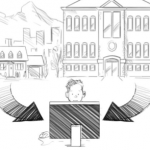 Practising Research Skills – Teachers and librarians work with students in a digital literacy programme to develop a range of competencies which includes critical analysis, online safety, ownership and copyright, how to reference material and online safety. The scenario shows how traditional child-centred project … Continue reading →
Practising Research Skills – Teachers and librarians work with students in a digital literacy programme to develop a range of competencies which includes critical analysis, online safety, ownership and copyright, how to reference material and online safety. The scenario shows how traditional child-centred project … Continue reading →
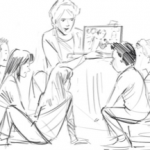 Collaborative media project – Students are set open projects involving experts to develop research skills as well as developing subject knowledge in areas in which they are interested. They are also involved in developing a rubric for content and assessment with the teacher and … Continue reading →
Collaborative media project – Students are set open projects involving experts to develop research skills as well as developing subject knowledge in areas in which they are interested. They are also involved in developing a rubric for content and assessment with the teacher and … Continue reading →
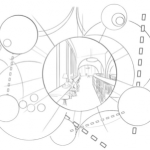 Library as learning space – The school library acts as a ‘physical-digital’ hub that merges a multi-purpose physical space and virtual resources. The physical space is flexible, comfortable and full of engaging, stimulating material. It has inviting places to work and socialise, comfortable furniture and … Continue reading →
Library as learning space – The school library acts as a ‘physical-digital’ hub that merges a multi-purpose physical space and virtual resources. The physical space is flexible, comfortable and full of engaging, stimulating material. It has inviting places to work and socialise, comfortable furniture and … Continue reading →
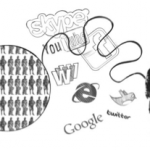 Support network of experts – Students are asked to devise and complete a project that involves resources from different subjects in the curriculum and requires they involve external experts. Guidelines and an assessment checklist that fulfil curriculum requirements have been agreed by teachers and students. … Continue reading →
Support network of experts – Students are asked to devise and complete a project that involves resources from different subjects in the curriculum and requires they involve external experts. Guidelines and an assessment checklist that fulfil curriculum requirements have been agreed by teachers and students. … Continue reading →
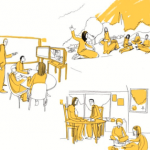 Outdoor study project – The students go out to explore the school grounds tasked with a problem or challenge. They have to either capture authentic data, or explore how concepts can be applied in the real world. Continue reading →
Outdoor study project – The students go out to explore the school grounds tasked with a problem or challenge. They have to either capture authentic data, or explore how concepts can be applied in the real world. Continue reading →





















